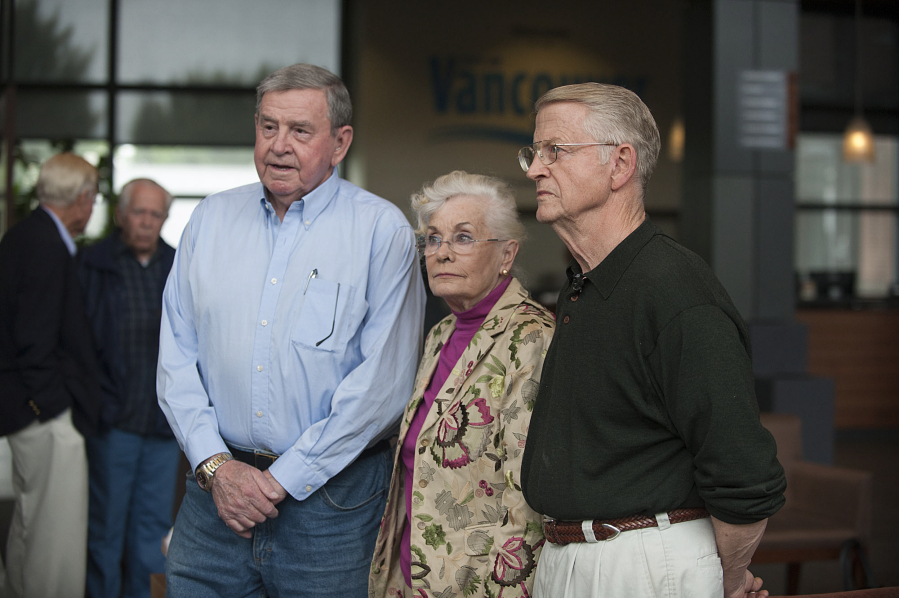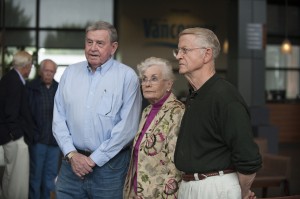Pensions make a difference when mayor

Royce Pollard, Pat Jollota and Larry Smith were central to the opposition movement against the fat salary hikes the city Salary Review Commission recently gave Vancouver’s mayor and city council for 2017-18.
All three served on the Vancouver City Council. Pollard was mayor for six terms. Smith was a councilor for three terms, serving as mayor pro tem for part of that time. Jollota served on the council 20 years.
All three say serving on the council should be about public service, not about the pay.
But as current Mayor Tim Leavitt has pointed out in the kerfuffle over how much he should earn, the three players in the referendum petition effort to retract the pay hike weren’t depending on their council salaries as their sole income. All three collected pensions.
Pollard and Smith received military pensions. Jollota, began receiving a public pension three years into her term after the passing of her husband, who worked for the Los Angeles Police Department. (When she ran for office, she was curator of the Clark County Historic Museum.)
“Yes, it’s true,” Pollard told the Columbian earlier this month. “I worked for that (pension). I spent 27 years in the U.S. Army, and I left skin in the game.”
Bruce Hagensen, also a ringleader in the referendum petition effort, ran and owned Vancouver Sign company while he was Vancouver mayor from 1987 to 1995.
“The issue is not how much time you spend at the job,” Hagensen said. “The real issue is that it’s supposed to be public service, part time. Those people who want to make the mayor and the council full time had better look at the city charter.”
Smith also feels public service is the point, but given the pension he received, he acknowledged, “It’s easy for me to say that.”
But other city councilors, such as Alishia Topper and Bart Hansen, manage to balance a full-time job with their council duties, Smith noted.
Leavitt, a professional engineer, devoted so much time to his mayoral duties that his employer, PBS Engineering and Environmental, cut his pay in half. He says his push for higher pay for the mayor isn’t to benefit him because he’s 99 percent sure he won’t run for re-election.
“My hope is that there’s continuing momentum for adjusting the salaries so in the next election and moving forward we are able to attract a broad swath of experienced, talented individuals who … are more willing to offer up their abilities to serve the citizens of Vancouver,” he said in March.
Friday, Leavitt said he had this question for the former mayors and councilors: “’Could you and would you have run for office if the only income was the council pay?’ If they are being honest, it’s obvious the answer would be, ‘No, not possible. $20,000 a year is not a reasonable living wage.’”

